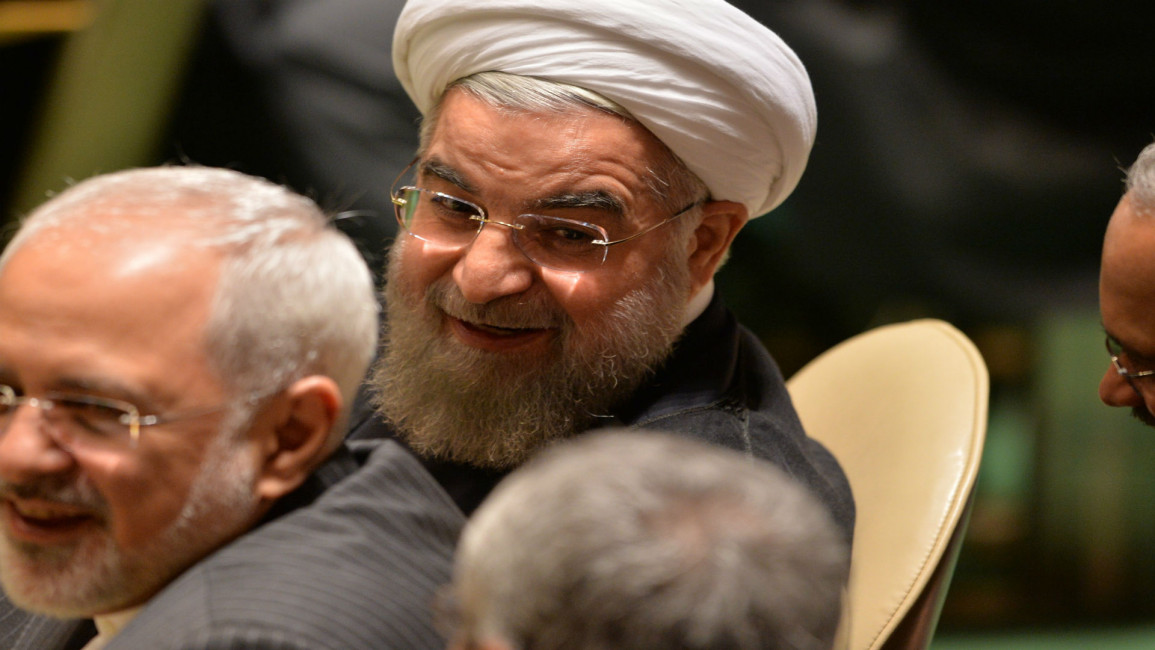
Rifts in Rouhani's administration leave Iran in shambles
Three years of economic sanctions, widespread corruption and mismanagement have together left
Eighty five percent of the government's budget was spent on salaries and expenses in 2014 and just 15 percent was left for infrastructure building and development.
The economy has not created any extra jobs in the past decade. Forty million people are dependent on government paychecks for their survival. Fifteen million are living under absolute poverty line and two-thirds of the country are under the poverty line.
The minimum wage that millions of Iranian people live on is just three dollars a day, while
Stepping into crisis
The situation in the past three years has been getting so bad that even high-ranking officials cannot stop talking about the economic downturns and failures.
This is the main point of an open letter to Rouhani which recently circulatee: "Based on budget predictions of companies which are involved in the capital market and statistical reports of industrial operations, if we do not make decisions in this critical situation, we are afraid that the country will shift from current depression to crisis and people will lose trust. If this happens we will need years to overcome the consequences."
This is the warning of four cabinet members - the ministers of economy, labour, defence and industry.
| This letter mentions four important facts about the trends in Iranian economy |
Economic trends
This letter mentions four important facts about the trends in Iranian economy: A 42 percent decrease in the stock index in the past two years, increasing lack of demand for products [100,000 cars made in
The group of four predicts that there is a high probability of market crash in the near future. In a situation in which economic statistics are murky and ambiguous, these numbers from cabinet members shed some lights on
Factional reactions
Pragmatists who support Rouhani's economic policy criticised the letter saying it neglected root causes of
Others are worried about inflation reaching as high as 40 percent and advise Rouhani to enforce more discipline in money markets.
They believe that the tone of the letter is very similar to the tone of the opposition, as if these four cabinet members have no responsibility in making and enforcing current economic policies.
Some figures of the traditional bazaar believe that the letter should have been confidential.
Khanenei loyalists in the military and security establishment who have a high stake in the financial market praised the letter. They have been complaining about stagnation for a long time. But other loyalists say that bad news should always be kept away from the "enemies" and "outsiders".
Rouhani administration divided
This letter is a sign of schism in the Rouhani administration.
Rouhani is against borrowing from the central bank; he wants to control the inflation rate. In the past two years, inflation has decreased from 40 to about 15 percent. These four ministers advise Rouhani to loosen up his tight monetary policy.
"This letter has provided opportunity for the opposition to attack Rouhani's administration," said Rouhani's press secretary. "It has created some speculation such as lack of economic policy and miscommunication in the cabinet," he added.
| The message of this letter stands starkly against the rosy pictures Rouhani paints of Iran's economy |
The message of this letter stands starkly against the rosy pictures Rouhani paints of
Only promises
Immediately after Iran's parliament voted to accept the nuclear deal on October 13, Rouhani addressed the nation on state-run TV and promised "the economy will get better next year". The government wanted to release the economic pressures of the sanctions.
Many MPs were not sure about the consequences of the deal - and offered 200 suggestions to be discussed before the vote. But the speaker of the Majlis, Ali Larijani - a Rouhani ally - cut the discussions to facilitate the confirmation as soon as possible.
Khamenei also sent his senior security adviser, Ali Asghar Hejazi, to the Majlis to expedite the confirmation process.
The Guardian Council confirmed the Majlis bill the very next day.
In the past two years, Rouhani has tied every economic problem to the sanctions, even the shortage of drinking water. Nevertheless, the market has shown no sign of optimism towards the nuclear deal.
The exchange rates have been increasing and national currency has weakened instead of gaining strength. It is not clear at this point how sanctions relief would change the economic perspective of the country.
Majid Mohammadi is an Iranian-born academic and the author of several books in Persian and English on politics, arts and religion in Iran.
Opinions expressed in this article remain those of the author and do not necessarily represent those of al-Araby al-Jadeed, its editorial board or staff.




